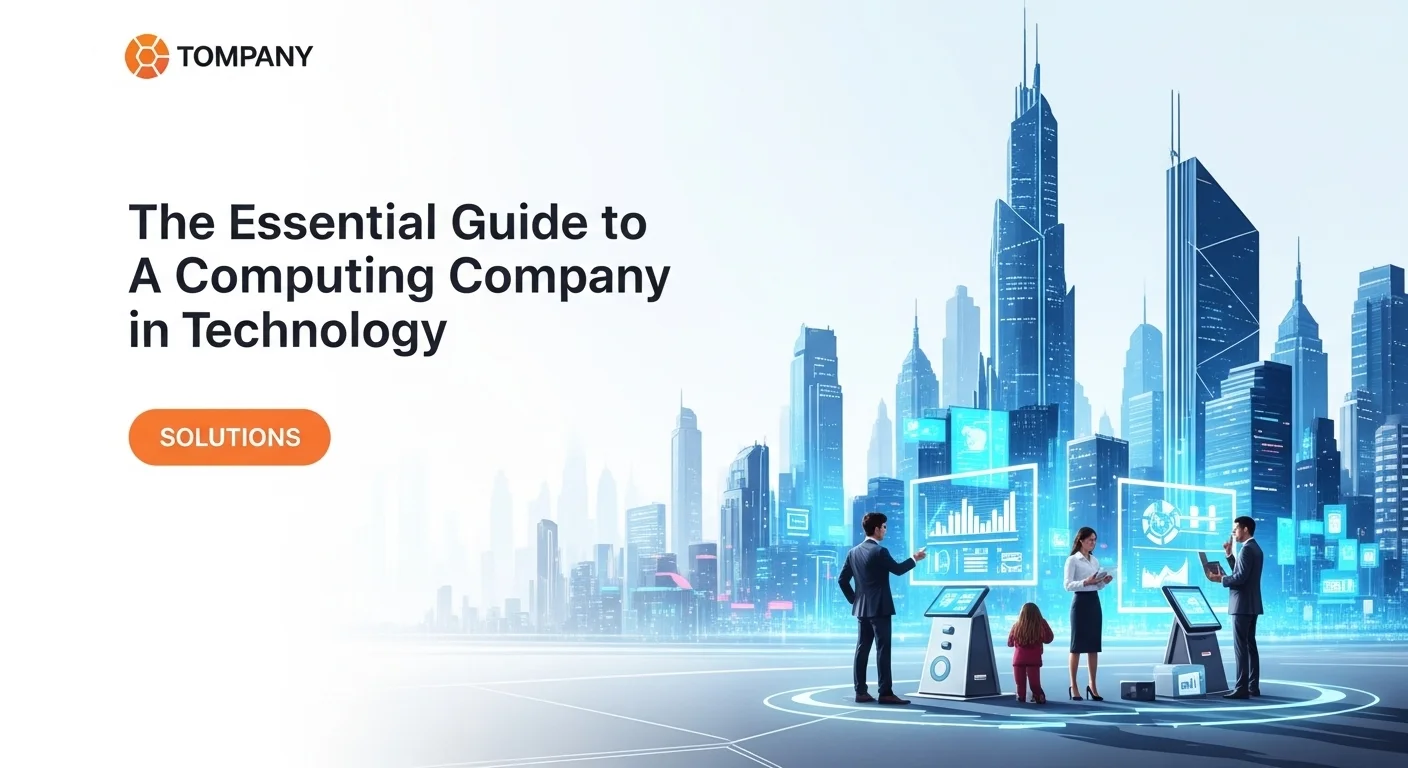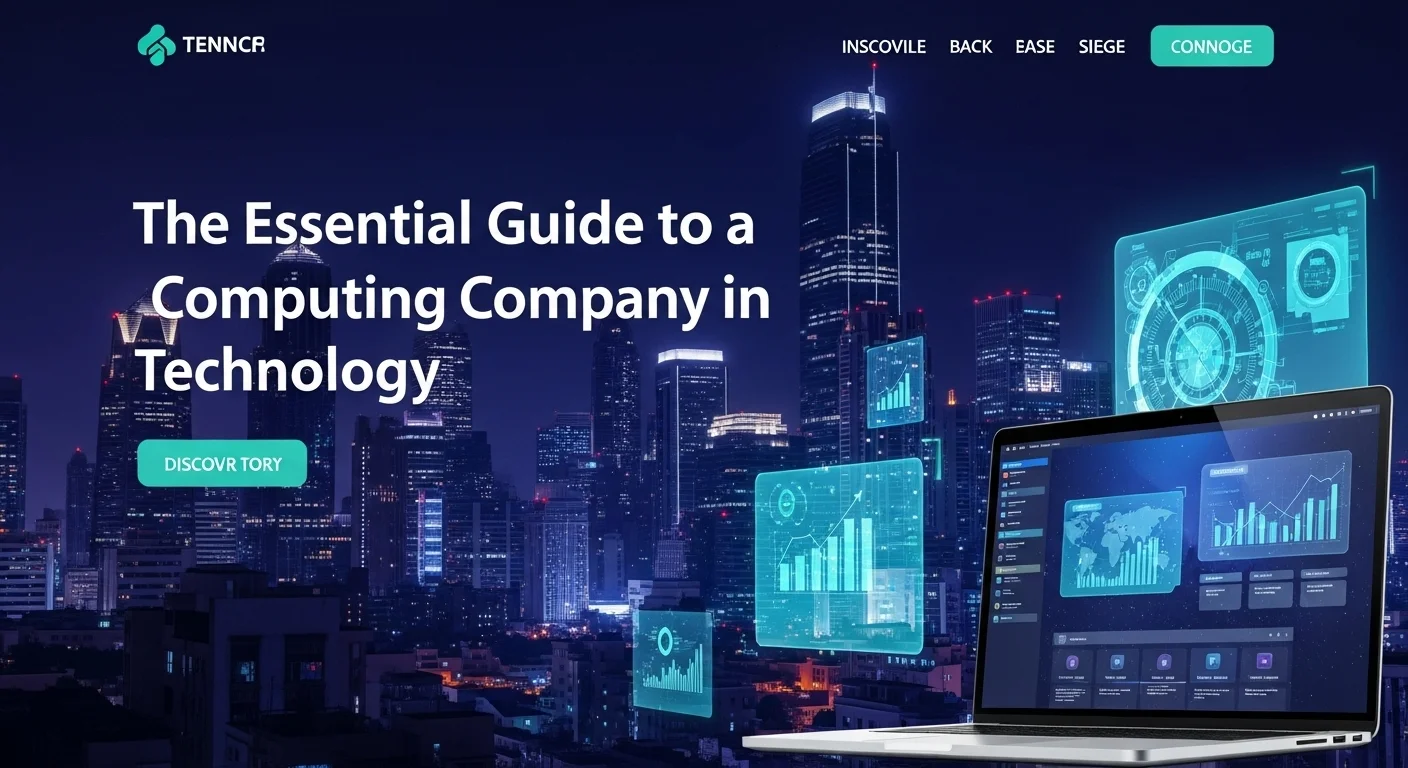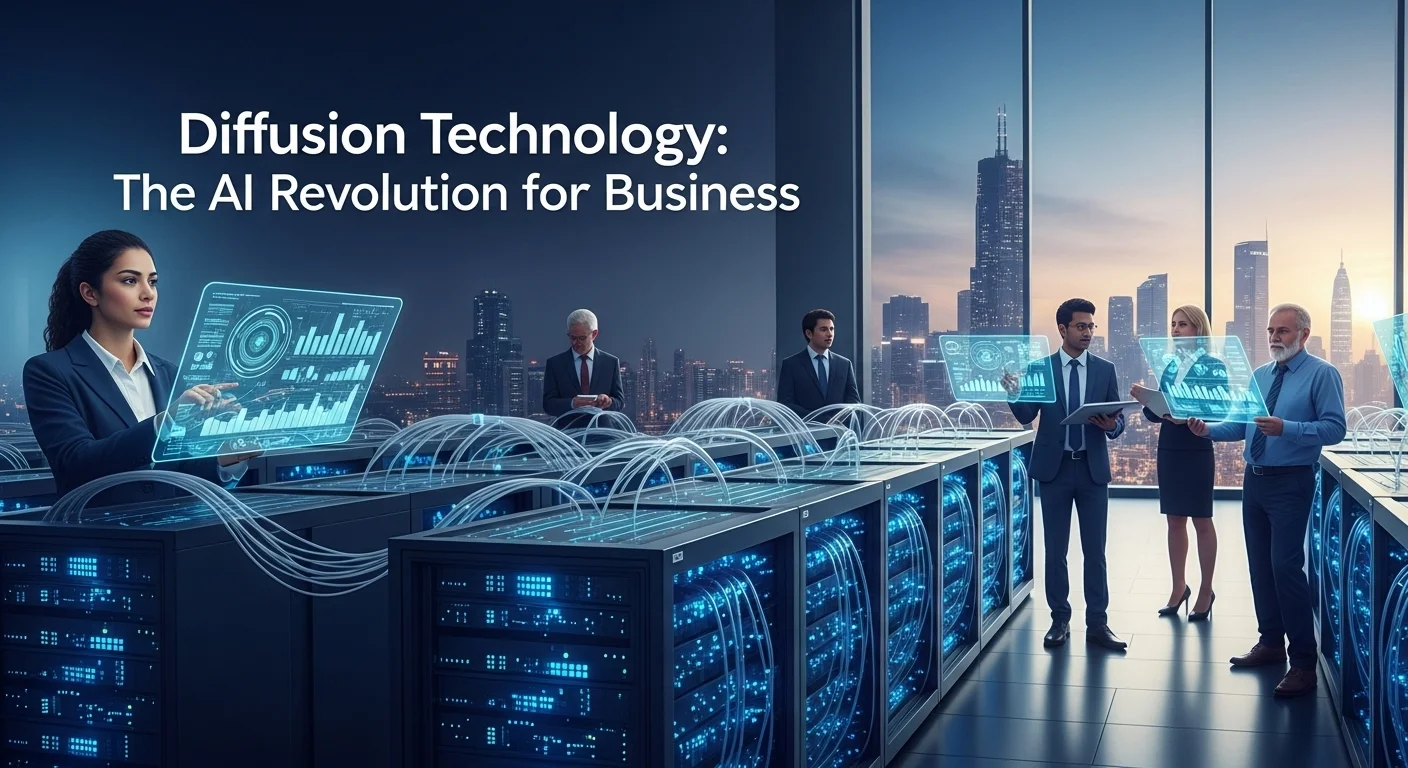Your Guide to Computing Companies: From Cloud Services to Cybersecurity

Executive Summary
I've spent over a decade helping businesses navigate the often-confusing world of technology. The term 'computing company' gets thrown around a lot, but what does it really mean for you? It’s not just about the giants like Microsoft or Google; it’s about a whole ecosystem of partners that can make or break your business. In this guide, I'll break it all down for you. We'll walk through the difference between cloud services and cloud consulting, why a good security firm is non-negotiable, and how to choose the right partners to fuel your growth. My goal is to cut through the jargon and give you the confidence to make smart tech decisions.
Table of Contents
Table of Contents
What is a Computing Company and Why Does It Matter?
Let's be honest, the term 'Computing Company' sounds a bit dated, right? It might bring to mind giant, room-sized machines from old movies. But in reality, these companies are the engine behind nearly every part of our modern lives and businesses. Their journey has been one of constant reinvention. It started with hardware pioneers like IBM creating the first commercial computers. Then came the PC revolution, led by companies like Apple and Microsoft, which brought technology into our homes. The internet boom of the 90s created a new wave of companies focused on search and e-commerce. Today, we're living in the era of cloud, AI, and big data, where the most influential companies provide intelligent services on a global scale. Understanding this evolution helps you see that this isn't one single industry, but a vibrant ecosystem.
I find it helpful to think of this ecosystem like building a house. Hardware companies (like Dell, HP, or Nvidia) provide the physical foundation—the bricks, lumber, and raw materials. They build the servers, laptops, and processors that everything else runs on. Software companies (like Microsoft, Adobe, or Oracle) provide the internal systems—the electrical wiring, plumbing, and interior design that make the house functional and livable. Then you have the Internet companies (like Google or Meta) that build the neighborhoods and roads connecting all the houses. Finally, and perhaps most importantly for many businesses, you have the services sector. These are your architects, general contractors, and specialized craftsmen. They help you design, build, and manage your technology. In my experience, two service areas have become absolutely critical for survival and growth: cloud computing and cybersecurity. Choosing the right partners in these areas isn't just an IT decision anymore; it's a core business strategy.
The Rise of Cloud Computing: Services and Consulting
The cloud has completely changed the game. Instead of buying and maintaining your own expensive servers, you can now rent computing power as you need it, just like electricity. This shift has created two key types of businesses you need to know: cloud computing services companies and cloud computing consulting companies.
A cloud services company, or Cloud Service Provider (CSP), is the utility company. They own the massive, global power plants (data centers) that make up 'the cloud'. By a significant margin, Amazon Web Services (AWS) is recognized as the biggest cloud computing company in the world. They, along with competitors like Microsoft Azure and Google Cloud Platform (GCP), offer a staggering menu of services, from simple storage to complex AI tools. They provide the raw power, scalability, and pay-as-you-go flexibility that allows a small startup to use the same world-class technology as a Fortune 500 company.
But having access to a power plant doesn't mean you know how to wire a skyscraper. That's where cloud computing consulting companies come in. These are the master electricians and architects. I've worked with countless businesses that were overwhelmed by the options offered by AWS or Azure. A good consultant helps you make sense of it all. They help you design a secure and cost-effective plan, migrate your existing systems without causing chaos, and optimize your setup so you're not wasting money. They are the essential bridge between the powerful, raw technology of the cloud providers and your unique business goals. For most companies, a successful move to the cloud depends on finding a great consulting partner.
The Critical Role of Computer Security Companies
As our businesses have become digital, so have the criminals. The threats we face today are more sophisticated and relentless than ever before. This is why computer security companies have become so vital. Think of them as the digital bodyguards, alarm system installers, and private investigators of the modern world. This field includes major players like Palo Alto Networks and CrowdStrike, who are constantly innovating to stay ahead of threats, as well as giants like Microsoft and Cisco, who have built powerful security features into their core products.
These firms do more than just sell antivirus software. They offer a whole suite of protective services: 24/7 monitoring to watch for suspicious activity, incident response teams to manage a crisis, and vulnerability testing to find weak spots before the bad guys do. With cyberattacks becoming more automated, many security firms now use AI to fight back in real-time. For many small and mid-sized businesses, having an in-house security team is simply not practical. That's why so many search for 'computer security companies near me.' They're looking for a local or accessible partner who can provide enterprise-level protection as a managed service. When your digital house is on fire, you want an expert you can trust, who understands your situation and can respond quickly. Choosing the right security partner is one of the most important decisions you'll make to protect your data, your reputation, and your bottom line.

A Practical Guide to Choosing Your Technology Partners
Navigating this complex landscape requires a clear strategy. I've seen businesses succeed or fail based on the tech partners they choose. The process shouldn't start with sales demos; it should start with a hard look at your own business. What are you trying to achieve? Are you aiming for faster growth, better efficiency, stronger security, or all of the above? Be crystal clear on your goals first. Once you know what you need, you can start evaluating potential partners. Look past the glossy brochures. Ask for case studies relevant to your industry, speak with their current clients, and check for industry-standard certifications. For example, a top-tier cloud consultant will proudly display their AWS, Azure, or GCP certifications. A security firm should have a proven track record of helping businesses comply with regulations like GDPR or HIPAA. You're not just buying a service; you're entering a relationship. Find a partner whose expertise and culture are the right fit for you.
Deep Dive: Cloud Services vs. Cloud Consulting Explained
The decision to 'move to the cloud' is just the beginning. The real question is *how*. This boils down to understanding the different service models and when to call in an expert. The big providers like AWS, the biggest cloud computing company in the world, typically offer three main types of services. I like to use a simple analogy:
- Infrastructure as a Service (IaaS): This is like leasing an empty plot of land. You get the raw space, resources, and utility hookups, but you have to build everything from the ground up. It offers maximum flexibility but requires the most expertise.
- Platform as a Service (PaaS): This is like leasing a plot of land that already has the foundation and framework of a house built. You don't have to worry about the low-level infrastructure; you can focus on building and customizing your applications.
- Software as a Service (SaaS): This is like renting a fully-furnished apartment. You just sign up, log in, and start using the software. Think Microsoft 365 or Salesforce. It's the easiest to use but offers the least customization.
This is where cloud computing consulting companies show their true value. They are your strategic advisors. A consultant helps you decide whether you need IaaS, PaaS, or a hybrid approach. They can manage a complex project, like moving a critical database to the cloud, or provide ongoing support to make sure your cloud spending doesn't spiral out of control—a very common problem I see. A retail business might need a consultant to design an architecture that can handle massive holiday traffic spikes, while a healthcare provider will rely on a consultant to build a HIPAA-compliant environment. The consultant's job is to translate your business needs into a technical solution that is secure, efficient, and built for the future.
Building a Resilient Cybersecurity Strategy
In today's world, a reactive approach to security is a recipe for disaster. You can't afford to wait for an attack to happen. Building a resilient strategy with the right computer security companies is not optional. It’s about building layers of defense. The first layer is Prevention. This means using foundational tools like firewalls and endpoint protection from providers like Fortinet or Palo Alto Networks. It also means making sure only the right people have access to the right data. The second layer is Detection and Response. No defense is perfect. You need to be able to spot a breach the moment it happens and react instantly. This is where tools from companies like CrowdStrike come in, acting as digital detectives inside your systems. The third layer is Recovery. If an attacker gets through, you need solid, tested backup and recovery plans to get your business back online quickly.
For most businesses, managing this is too complex to do alone. This is why the search for 'computer security companies near me' is so common. Businesses are looking for a Managed Security Service Provider (MSSP) who can act as their outsourced 24/7 security team. When vetting a security partner, ask tough questions. How will they handle an incident? What experience do they have in your specific industry? A partner for a financial firm must understand financial regulations, while one for a manufacturer needs to understand industrial control systems. A great partner also helps you strengthen your weakest link: your employees. They provide training to help your team spot phishing emails and other common scams. Ultimately, a strong cybersecurity posture is a living process, built on a foundation of great technology and expert human partnership.

Tips and Strategies to Maximize Your Tech Partnerships
Once you've chosen your partners, the work isn't over. A successful tech partnership is like any good relationship—it requires ongoing communication and effort. Here are some practices I’ve seen make all the difference. First, establish clear Service Level Agreements (SLAs). This document is your contract that defines expectations for performance, uptime, and response times. Second, hold regular review meetings. Technology and your business needs will change, so you need to constantly check in with your cloud computing consulting companies and other partners to ensure your strategy is still on track. Another key tip is to invest in your own team. Encourage your staff to get trained and certified on the platforms you're using, whether from the biggest cloud computing company in the world or its competitors. This empowers your team to manage the relationship better and make smarter decisions.
Never treat your technology as a 'set it and forget it' purchase. You should constantly be asking: Are we getting real value from our cloud spend? Are our defenses keeping up with the latest threats? Work with your cloud computing services companies to conduct regular cost reviews and have your computer security companies perform periodic audits and penetration tests. Use the data and dashboards your partners provide to track performance and guide your decisions. Finally, always look ahead. Ask your partners about emerging trends like generative AI or edge computing. A true partner isn't just there to fix today's problems; they're your strategic advisor, helping you prepare for the technological shifts that will define your industry tomorrow.
Cybersecurity Best Practices for the Modern Era
In this high-threat environment, adhering to best practices is non-negotiable. The gold standard today is a 'Zero Trust' architecture. The philosophy is simple: never trust, always verify. Every single request to access your data, no matter if it's from inside or outside your network, must prove it has permission. Leading computer security companies like Zscaler and Palo Alto Networks have built their platforms around this principle. Another crucial practice is continuous vulnerability management. This means constantly scanning for weak spots in your systems and patching them quickly before they can be exploited. It’s like regularly checking the locks on your doors and windows.
When you partner with an external firm, especially one you found by searching for 'computer security companies near me', make sure they provide more than just tools. They should provide intelligence—actionable reports on the threats that are most relevant to you. Practice your response plan with them through drills and simulations. It’s far better to find the holes in your plan during a drill than during a real crisis. Finally, have an ironclad data backup strategy. This is your last line of defense against threats like ransomware. Your backups should be isolated and unchangeable, ensuring you can restore your data and get back to business. For more detailed guidance, I always recommend resources from official bodies like CISA's cybersecurity best practices page.
Leveraging AI and Future Technologies
The next great frontier for every business is Artificial Intelligence (AI). This isn't science fiction anymore; it's a powerful tool that can automate tasks, unlock insights from your data, and create better customer experiences. Don't be intimidated by it. The major cloud computing services companies like AWS, Microsoft Azure, and Google Cloud have made it surprisingly accessible, offering powerful AI and machine learning tools you can start using today. A great first step is to work with cloud computing consulting companies that specialize in AI. They can help you identify where AI can have the biggest impact on your business and guide you through your first project.
And beyond AI, the pace of change is only accelerating. Technologies like quantum computing, which promises to solve currently unsolvable problems, and edge computing, which processes data closer to the source for faster results, are on the horizon. To thrive, your business must remain curious and agile. This means building a culture of innovation and being willing to experiment. Partnering with a forward-thinking computing company, whether it's the biggest cloud computing company in the world or a nimble specialist, is your key to the future. They provide the expertise and infrastructure you need to explore what's next, ensuring your business isn't just keeping up, but leading the way.
Expert Reviews & Testimonials
Sarah Johnson, Business Owner ⭐⭐⭐⭐
As a small business owner, the tech world can be overwhelming. This guide helped, but I would have loved a few more real-world case studies for businesses my size.
Mike Chen, IT Consultant ⭐⭐⭐⭐⭐
A solid overview. As an IT consultant, I appreciated the clear breakdown between cloud service providers and consulting firms. It's a distinction many of my clients struggle with. Well-explained.
Emma Davis, Tech Expert ⭐⭐⭐⭐⭐
Finally, an article that connects all the dots! The explanation of how cloud, security, and future tech like AI all fit together under the 'computing company' umbrella was incredibly clear. A fantastic resource.



